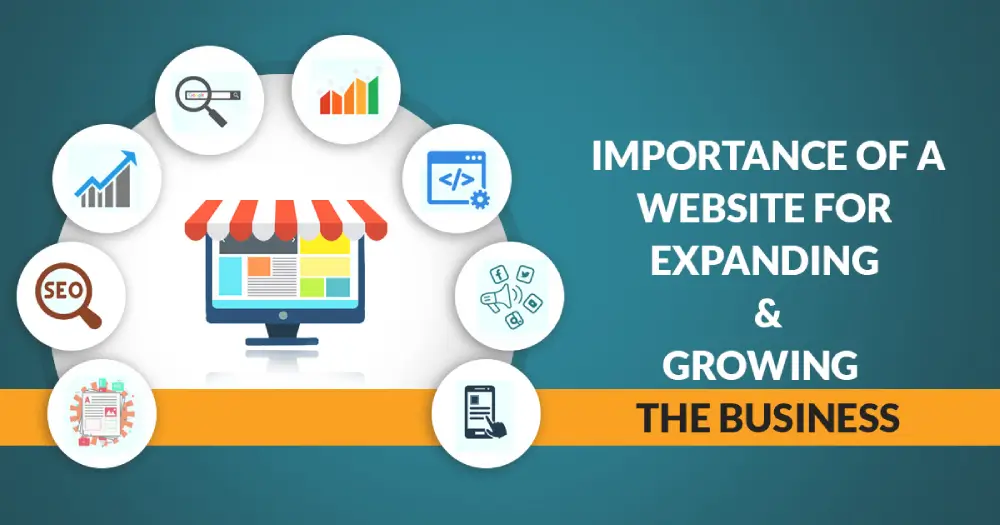In the modern digital world, having a website is not just an option – it’s a necessity. Whether you run a business, offer services, or share content, an online presence is crucial. The importance of a website cannot be overstated, as it serves as your digital storefront, making it easy for people to find and connect with you. Let’s dive into why having a website is essential in today’s fast-paced world.
Websites Build Credibility and Trust
When people search for a business, they expect to find a website. A professionally designed website gives credibility and builds trust among potential customers. Without a website, people may question your legitimacy. Reviews, testimonials, and company information help establish authenticity and reliability. This is why a small business needs a website to gain the trust of its audience.
24/7 Availability and Accessibility
Unlike a physical store with limited working hours, a website is available 24/7. Whether customers want to browse products at midnight or book a service early in the morning, your website allows them to do so. It also expands your reach globally, making your business accessible to a larger audience. The importance of a website lies in its ability to cater to customers anytime, anywhere.
Enhanced Marketing Opportunities
A website is a powerful marketing tool. By implementing Search Engine Optimization (SEO), businesses can increase their visibility on search engines, attracting organic traffic. Websites also integrate seamlessly with digital marketing campaigns, including content marketing, email marketing, and PPC advertising. This makes it clear why a small business needs a website to compete effectively.
Cost-Effective Advertising
Traditional advertising methods like TV, radio, and print ads can be expensive. In contrast, a website offers an affordable and long-term marketing solution. With minimal investment, businesses can use blogs, social media, and SEO to attract potential customers without recurring high costs. The importance of a website in reducing advertising expenses is undeniable.
Improved Customer Engagement
Websites allow for direct interaction with customers. Features like FAQs, contact forms, and live chat help businesses respond to queries quickly, improving customer experience. Additionally, blogs and newsletters keep customers engaged with valuable content. This is another reason why a small business needs a website to connect with its audience effectively.
Increased Sales and Revenue
For businesses selling products or services, a website acts as a sales platform. E-commerce capabilities enable customers to shop online, making transactions easy and secure. Additionally, integrating booking and payment systems simplifies the buying process, boosting revenue. The importance of a website in increasing revenue cannot be overlooked.
Competitive Advantage
In today’s competitive market, having a website gives businesses an edge. Companies without an online presence risk falling behind competitors who actively engage their customers through digital channels. A website ensures you stay relevant and competitive. That’s why a small business needs a website to remain ahead of the competition.
Showcasing Products and Services
A website serves as a portfolio where businesses can display their products, services, and achievements. High-quality images, detailed descriptions, and customer testimonials help potential clients make informed decisions. This highlights the importance of a website in business growth.
Data Collection and Customer Insights
Websites provide valuable data about customer preferences and behavior through analytics tools. Businesses can use this information to improve their services, tailor marketing strategies, and enhance user experience. This is why a small business needs a website to gain insights into customer behavior.
Integration with Social Media
A website acts as a central hub for all online activities. Social media integration allows businesses to cross-promote content, drive traffic from social platforms, and increase engagement. This interconnected approach strengthens brand awareness and customer loyalty.
Scalability and Business Growth
As businesses grow, websites can easily be updated to reflect new services, products, or expansions. Unlike print materials, which require reprints, a website can be modified quickly to stay relevant and up-to-date. The importance of a website grows as a business scales.
Professional Email and Branding
A business website enables custom email addresses (e.g., name@yourcompany.com), enhancing professionalism. This strengthens brand identity and helps build trust with customers.
Security and Customer Data Protection
Websites must prioritize security, especially when handling customer data. Secure transactions, SSL certificates, and compliance with regulations (such as GDPR) ensure customer trust and legal adherence.
Conclusion
In today’s digital era, having a website is no longer optional—it’s a fundamental part of success. From building credibility to increasing sales and improving customer engagement, a website is the foundation of any thriving business. If you haven’t set up a website yet, now is the time to take action.

